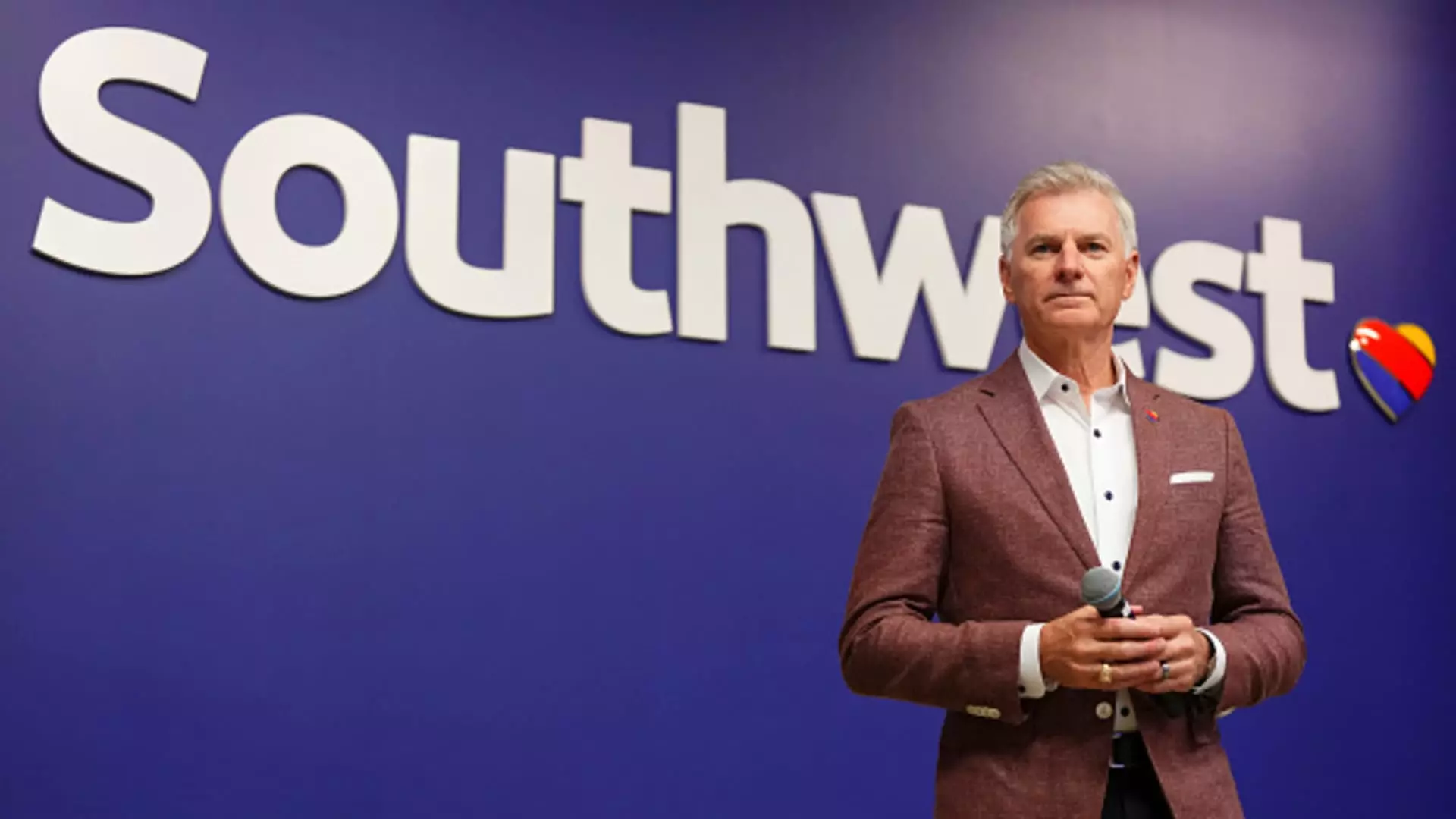In recent developments, Southwest Airlines has reached a significant agreement with Elliott Investment Management, an activist hedge fund, which seeks to reshape its governance and respond to growing concerns about its operational effectiveness. This deal, prompted by Elliott’s demands, introduces a fresh wave of directors to Southwest’s board and accelerates leadership transitions that may redefine the company’s strategic focus.
The primary outcome of the negotiation is the appointment of six new members to Southwest’s board, a move designed to enhance governance and strategic oversight. Elliott plays a crucial role in advocating for what it considers necessary reforms in the airline’s operational practices. The hedge fund’s representatives, John Pike and Bobby Xu, expressed satisfaction in a public statement, emphasizing the need for revitalization within a board that had long remained static in its composition and approach. Their assertion underscores a common sentiment in corporate governance: a diverse and dynamic board is essential for innovative problem-solving and strategic agility.
The agreement also entails an earlier-than-expected retirement for Executive Chairman Gary Kelly, marking a pivotal moment for the airline. Although Kelly has been a long-standing figure at Southwest, his tenure has faced criticism, particularly in relation to the airline’s sluggishness in pursuing more aggressive profit and revenue initiatives. This change in leadership may be indicative of a broader aspiration within the airline to adapt to market demands and competition, particularly from larger, more agile carriers like Delta Air Lines.
Southwest Airlines has historically operated with a distinctive model characterized by its open seating policy and a single-class cabin. However, in a climate where innovativeness and rapid market responsiveness are vital, there is an increasing call for a re-evaluation of these long-standing practices. Elliott’s call for the removal of both Kelly and CEO Bob Jordan highlights a faction within the investment community that believes a shakeup at the top is necessary to rejuvenate the airline’s business strategies. While Jordan has retained his position for now, the ongoing scrutiny suggests that he will need to adapt quickly to demonstrate effectiveness under the watchful eye of the newly constituted board.
Southwest’s performance figures illustrate the mounting pressure the airline faces in a competitive landscape. With its stock barely rising compared to the S&P 500’s substantial gains, stakeholders are eager for tangible improvements. The airline’s recent decision to cut unprofitable routes and implement new revenue-generation initiatives appears to be a step in the right direction; nevertheless, the efficacy of these initiatives in the long term remains uncertain.
The airline’s strategy includes a projected $2 billion in earnings before interest and taxes by 2027, along with the initiation of a significant $2.5 billion stock buyback program. While these financial maneuvers showcase an ambitious blueprint aimed at restoring shareholder confidence, they also raise questions about the fundamental business model Southwest has adhered to for decades. As competitors employ advanced strategies to capitalize on market trends, will Southwest pivot effectively or remain anchored to its traditional practices?
Critics argue that simply overhauling the board might not suffice, as systemic issues in strategic execution could take time to address. The challenge will be for the evolving board under new leadership to instill a culture of adaptability and foresight. If Southwest is to emerge from this transition as a stronger player in the airline industry, it must not only embrace change but also anticipate the shifting needs of its customers and the evolving landscape of air travel.
Southwest Airlines stands at a critical juncture, with potential changes in governance and leadership promising to recalibrate its operational trajectory. As the company embarks on this new phase, its ability to harmonize innovation and tradition will determine its resilience and relevance in an increasingly competitive market. The outcome of this strategic overhaul could pave the way for Southwest to reclaim its position as a leader in affordable air travel while meeting the expectations of a new generation of travelers and investors alike.

